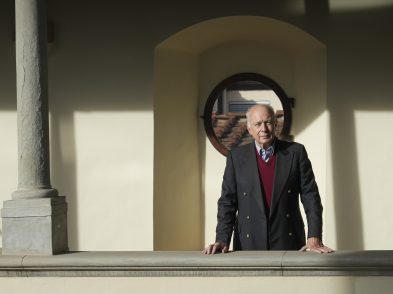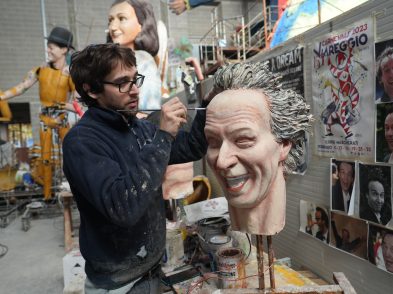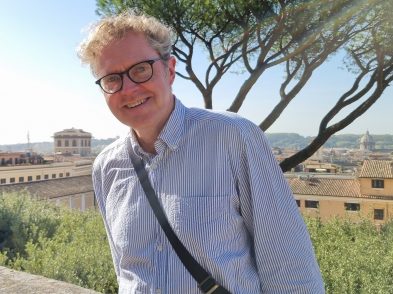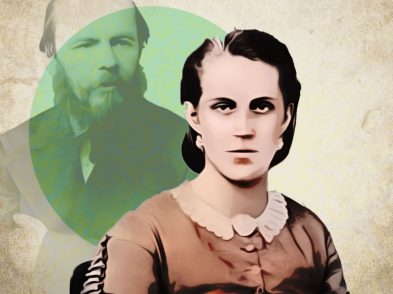Patrick Cassidy is one of Ireland’s most renowned living classical composers. In addition to classical music, he also writes film scores, such as the aria Vide Cor Meum (See my heart), originally composed for the film Hannibal. Directed in 2001 by Ridley Scott and starring Anthony Hopkins, Julianne Moore and Giancarlo Giannini, the movie was filmed on location in Florence and showcases iconic locations such as the Palazzo Vecchio and Basilica of Santa Croce.
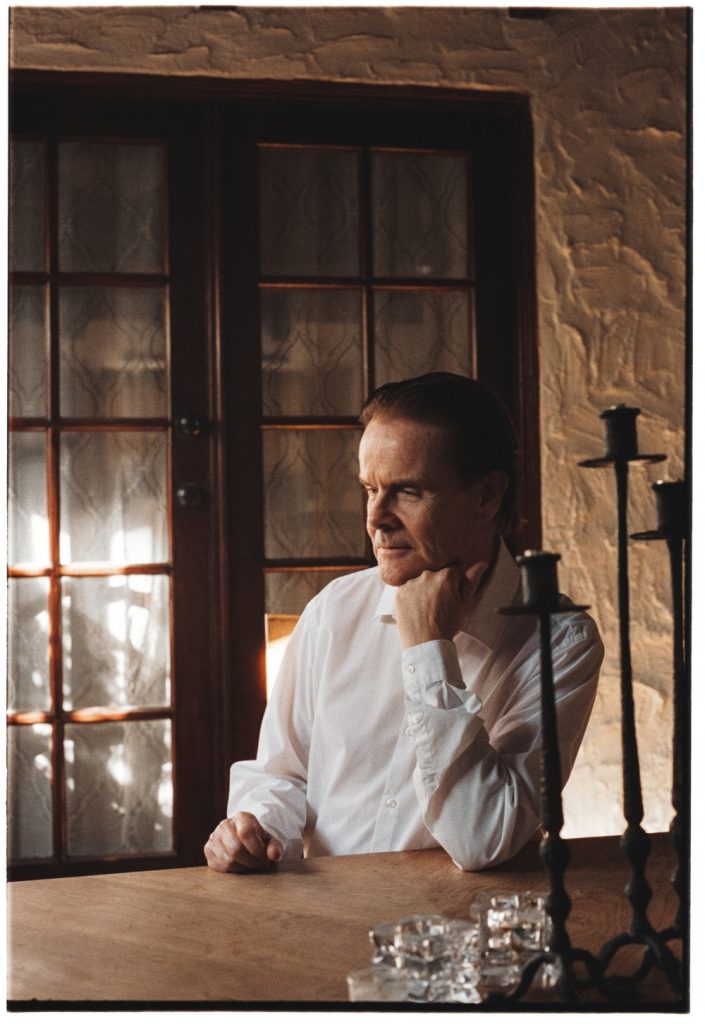
Did you have a special connection to Florence before you became involved in the production of Hannibal?
When I wrote Vide Cor Meum, I had no special connection to Florence. However, I love Italy and feel very much at home there.
The Irish Independent described Vide Cor Meum as “arguably one of the greatest pieces of art to ever come out of this country”. How long did it take you to create it?
Pietro Scalia, Ridley Scott’s editor, came to my studio and we discussed the type of aria that would suit the film. I was given very little time to write it: less than two weeks! It’s always like that with the movies. Everything is needed tomorrow. Sometimes panic is very good for creative juices!
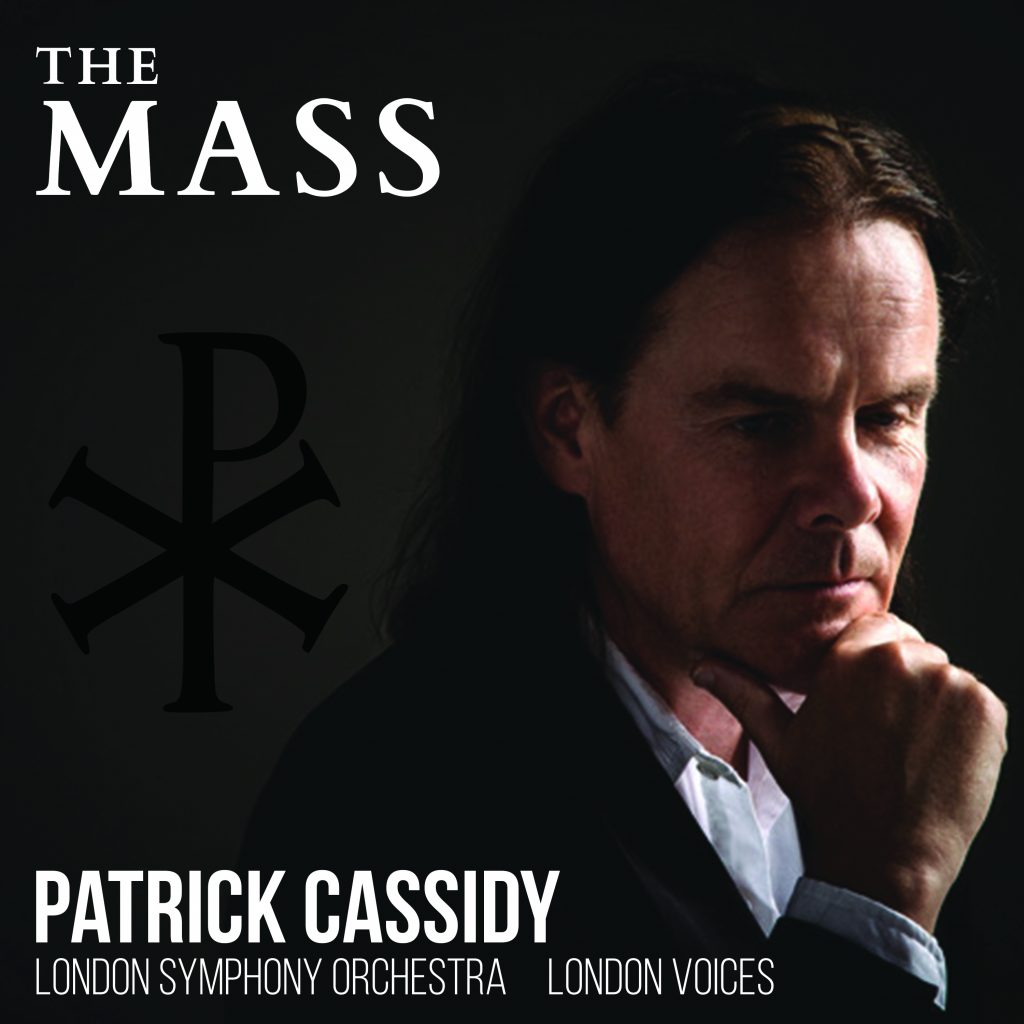
The libretto for this aria was taken from Dante’s first sonnet in La Vita Nuova. Was this when your fascination with Dante began?
I knew a great deal about Dante. He was a big influence on Irish writers and James Joyce said that Dante was his biggest literary influence. I think anyone, regardless of nationality, can relate to Dante and his work. It is reported that T. S. Eliot said, “Dante and Shakespeare divide the world between them. There is no third.” I was inspired by Dante’s words and his love for Beatrice.
Probably one of the most beautiful scenes in the movie Hannibal took place in the cloister of Santa Croce, where the loggia of the Pazzi Chapel was transformed into a theatrical backdrop for the opera. Do you have any special memories of filming in Santa Croce? Did you hear the aria performed by Danielle de Niese, Bruno Lazzaretti and the Lyndhurst Orchestra inside Brunelleschi’s magnificent space?
It was my first time in Florence. I was struck by the beauty of the city. There was a great camaraderie on the set of the film. There was a whole group of Italian actors and I was there for five days, rehearsing with them before the scene was shot. We spent great evenings together, eating pasta and drinking Italian wine. Also, Anthony Hopkins was very nice too. The first thing he told me was that the Welsh are the Irish who could not swim. Music is really his first love and he is a great pianist himself. He loved Vide Cor Meum. Ridley Scott is a very visual director and was able to capture the atmosphere of Florence.
I understand you have come back to Dante with your newest opera. Tell us more about that project.
At the time I was working on Hannibal, everyone on the project, including Ridley Scott, said that I should create a new opera. Many years later, I was reading The Divine Comedy and I got the idea that I should tell the story of Dante’s life in his own words. The entire libretto is taken from La Vita Nuova and La Divina Commedia, in Dante’s own words; nothing was added. I do not think the opera would have happened had I not written the aria first. Like a lot of art, it came about as an accident in many respects.
The opera Dante will premiere at Theater Hof in Bavaria on June 15, 2024. It is a love story that begins with the first meeting of Dante and Beatrice when they were children. The final scene is from Purgatorio, when Dante is reunited with his Beatrice at the gates of Paradise and they sing a duet. Martha De Laurentiis (who produced Hannibal with her husband, the legendary Dino De Laurentiis) and I had originally planned the premiere of the opera Dante to take place in Italy. Sadly, she passed away before Christmas last year, but I feel as though she is still guiding this project. The premiere of Dante will now take place in Germany, but it is very much an Italian opera and I hope the second production will be in Italy. Because of my work on Dante, the President of Italy bestowed upon me the title of Cavaliere dell’Ordine della Stella d’Italia (Knight of the Order of the Star of Italy). I am very proud of my association with Italy.
Vivaldi said, “There are no words, it’s only music there.” What do you think has stayed the same over the centuries in the composition of sacred music?
Classical music essentially started in Italy. Just like the Renaissance, it started there and spread around the world. I have always loved Vivaldi; his words are true and wise. He is better known for his violin concerti, like The Four Seasons, but he also wrote sacred music. Bach transcribed some of his concerti for organ and it is believed that Vivaldi had a significant impact on the German composer…Especially in sacred music, there is a connection to the plainchant of the Middle Ages. The sacred music of Palestrina, Handel and Bach is grounded in chant. I think this is what Vivaldi was referring to. If I may say so, I do think that Vide Cor Meum sounds like it was written by an Italian!

